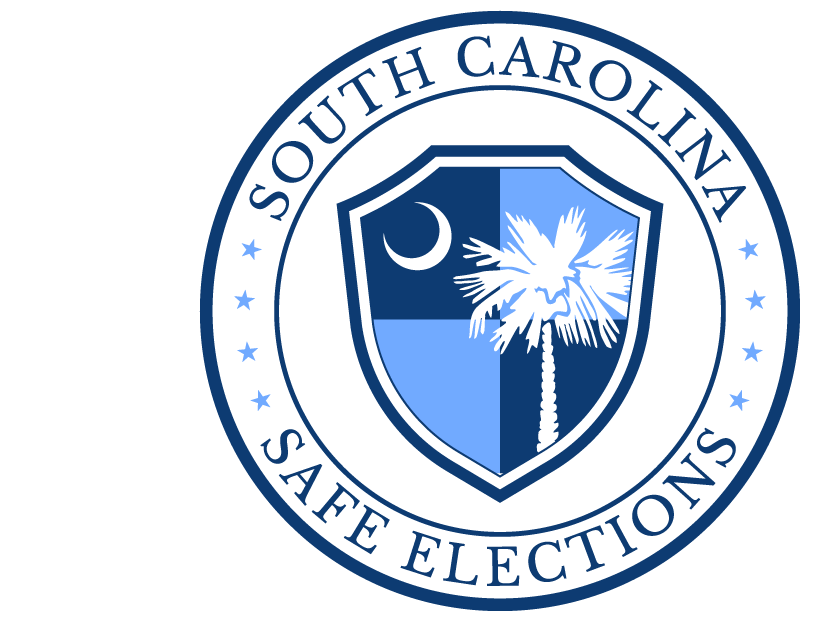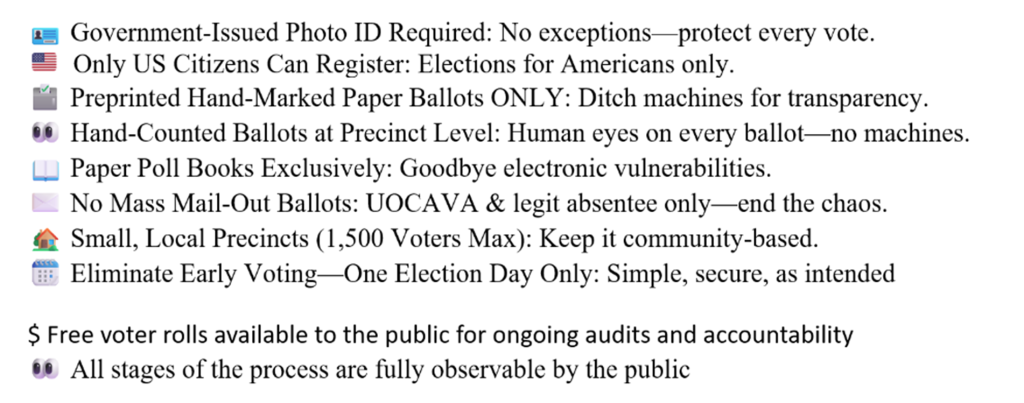If our votes don’t count accurately, we’ve lost the very soul of our Republic. That’s why on Thursday—February 26, 2026—we gathered at the State House with passionate patriots from every corner of our state, Congressman Ralph Norman, Attorney General candidate David Pascoe, and State Representative Rob Harris to demand better.
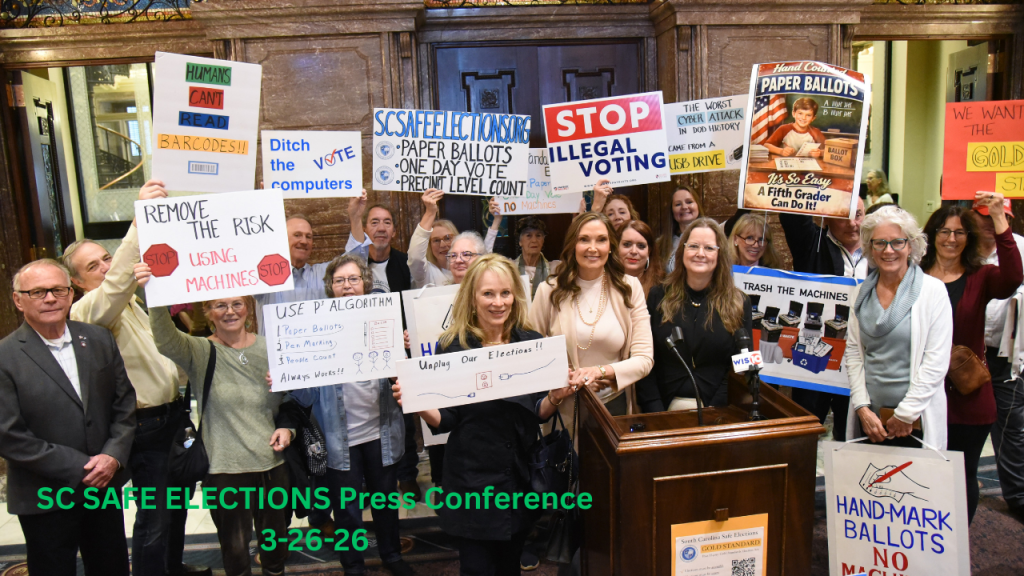

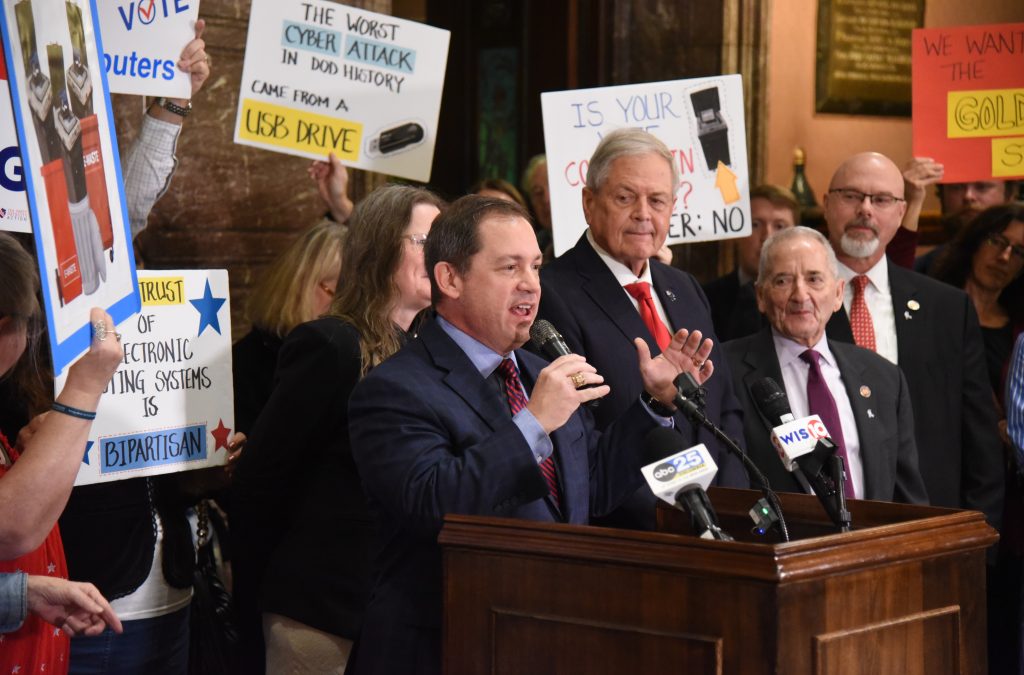
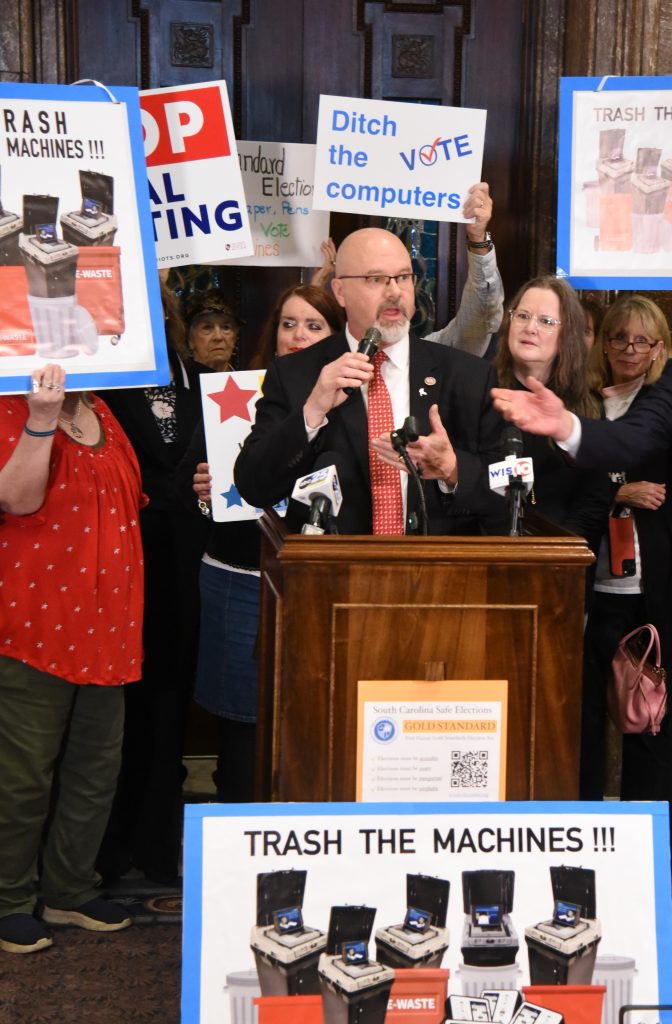
We’re not just complaining—we’re offering solutions. The current system falls short: black-box electronic machines owned by opaque corporations hide how votes are counted. Voters can’t see, verify, or trust the process. National polls show nearly two-thirds of Americans worry these machines could be hacked or manipulated remotely. In South Carolina, limited observer access, weak chain of custody, unattended machines, and inaccessible audit data only fuel the distrust.
But doubt doesn’t have to win. Momentum is building for real change. We presented our vision: the Gold Standard Elections Act (H.4295), a proven path to secure, transparent, verifiable, and accessible elections for eligible voters only.
Key pillars of the Gold Standard:
- Strict government-issued photo ID with no exceptions
- Citizenship-only registration and voting
- Hand-marked paper ballots—no computers or machines
- Hand-counting at the precinct level using our efficient, tested GS Tally method (cheaper than machines, finished by midnight!)
- Clean voter rolls, small precincts (max 1,500 voters), paper poll books
- Minimal mail-in ballots (military, overseas, legitimate absentees only)
- One Election Day
South Carolina can lead the South—and the nation—by passing H.4295. When every vote is counted publicly and verifiably, confidence returns, turnout rises, and our Republic thrives.

Watch the full press conference video here:
This isn’t a partisan issue. It’s about providing elections for the people by the people. Join us. Contact your legislators. Demand the Gold Standard. Together, let’s make South Carolina the beacon of election excellence.
Thank you for standing with us. Our best days are ahead when our citizens have confidence that their vote counts.
